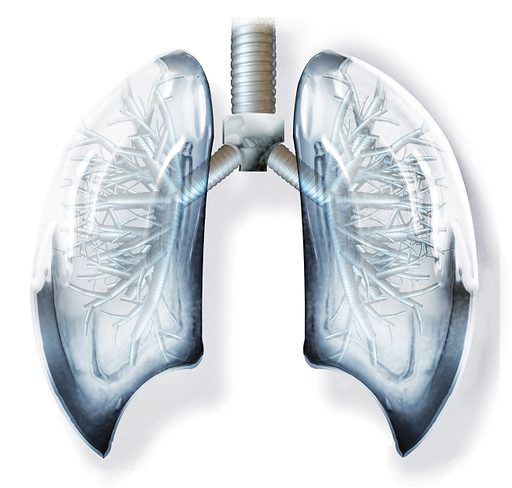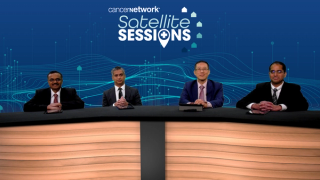
Non-Small Cell Lung Cancer (NSCLC)
Latest News
Latest Videos

CME Content
More News

Adding bevacizumab to atezolizumab plus carboplatin and pemetrexed appears to be tolerable among patients with metastatic nonsquamous non–small cell lung cancer.

Data from the phase 3 INSPIRE trial may support iruplinalkib as a new treatment option for those with advanced ALK-positive non–small cell lung cancer.

The FDA will review the supplemental biologics license application for alectinib based on data from the phase 3 ALINA study.

Expanding or updating coverage with Medicaid may lead to positive health outcomes among patients with non–small cell lung cancer following surgery, according to Leticia Nogueira, PhD, MPH.
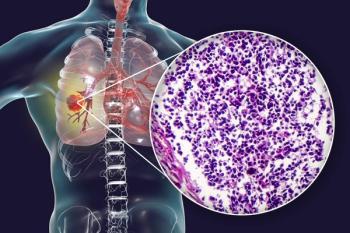
Treating patients with NSCLC with stereotactic ablative radiotherapy and chemotherapy reduces toxicity, according to a study conducted by UCLA.

Findings from the phase 1b/3 IMscin001 study support the European Commission’s approval of subcutaneous atezolizumab as a treatment for lung cancer and other disease types.

Data from the phase 3 LUNAR trial support the use of tumor treating fields in patients with non–small cell lung cancer.

Investigators are assessing avutometinib in combination with sotorasib as a treatment for those with KRAS G12C–mutated non–small cell lung cancer in the phase 1/2 RAMP-203 study.

Investigators also report that patritumab deruxtecan is well tolerated in those with EGFR-mutant non–small cell lung cancer in the HERTHENA-Lung01 study.

Findings from a randomized trial highlight that treatment with mirtazapine may lead to an improvement in health-related quality of life among those with advanced non–small cell lung cancer and anorexia.

Adding adaptive radiation to chemotherapy may offer a novel approach to treating patients with advanced non–small cell lung cancer, according to Michael Steinberg, MD.

Results from the phase 2 KRYSTAL-1 trial led to the approval of adagrasib for patients with KRAS G12C–mutated non–small cell lung cancer by the European Commission.

Patients with non–small cell lung cancer who already received LN-145 in the phase 2 IOV-LUN-202 trial will be followed per trial protocol following the FDA’s clinical hold.

A review from the FDA confirms the dose comparison post-marketing requirement that was detailed at the time of sotorasib’s accelerated approval for those with KRAS G12C–mutated non–small cell lung cancer.

The application for amivantamab and lazertinib for locally advanced or metastatic non–small cell lung cancer is supported by data from the phase 3 MARIPOSA trial.

“KRAS is probably the most exciting area in clinical trials right now, not only in thoracic oncology but also pancreatic and colorectal cancer, where we’ve seen a lot of combination therapies. My view is the small molecule inhibitors are the base, not the ceiling.”

During the 2023 European Society of Medical Oncology, experts in the field of lung cancer convened to discuss the use of biomarker testing and updated trial results that were presented.

Dr Narjust Florez discusses the hepatoxicity associated with KRAS G12C inhibitors, noting both adagrasib and sotorasib pose liver damage risks, but real-world data suggests adagrasib may have a lower risk; she emphases the importance of considering other causes of hepatoxicity before attributing it solely to these therapies.

CodeBreaK 100 compares the safety and efficacy of pembrolizumab combined with adagrasib or sotorasib in treating KRAS G12C NSCLC, noting sotorasib has a longer presence and familiarity in clinical use.
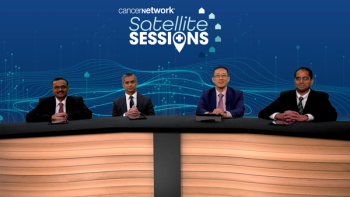
Alykhan Nagji, MD, provides a brief overview of the landscape surrounding the treatment of patients with stage-III resectable NSCLC.

Data from a real-world study may help clinicians in treatment decision-making for those with extensive-stage small cell lung cancer who are unable to afford PD-L1 inhibitors.

Adding camrelizumab to chemotherapy appears tolerable for patients with resectable stage IIIA or IIIB non–small cell lung cancer in the phase 2 TD-FOREKNOW trial.

KRYSTAL-7 is a study exploring the efficacy of adding adagrasib to first-line pembrolizumab in patient with NSCLC with varying PD-L1 expression levels, showing promising response rates and progression-free survival, but also adverse events like hepatotoxicity.

Dr Narjust Florez discusses the KRYSTAL-1 trial, focusing on the effectiveness and side effects of adagrasib in treating patients with NSCLC and KRASG12C mutations, and noting their impact on progression-free and overall survival.
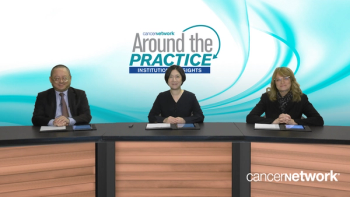
The panelists close their discussion on non-small cell lung cancer by emphasizing the need for continued research, early screening, and collaboration with dermatologists to address the unmet needs and improve overall outcomes.


